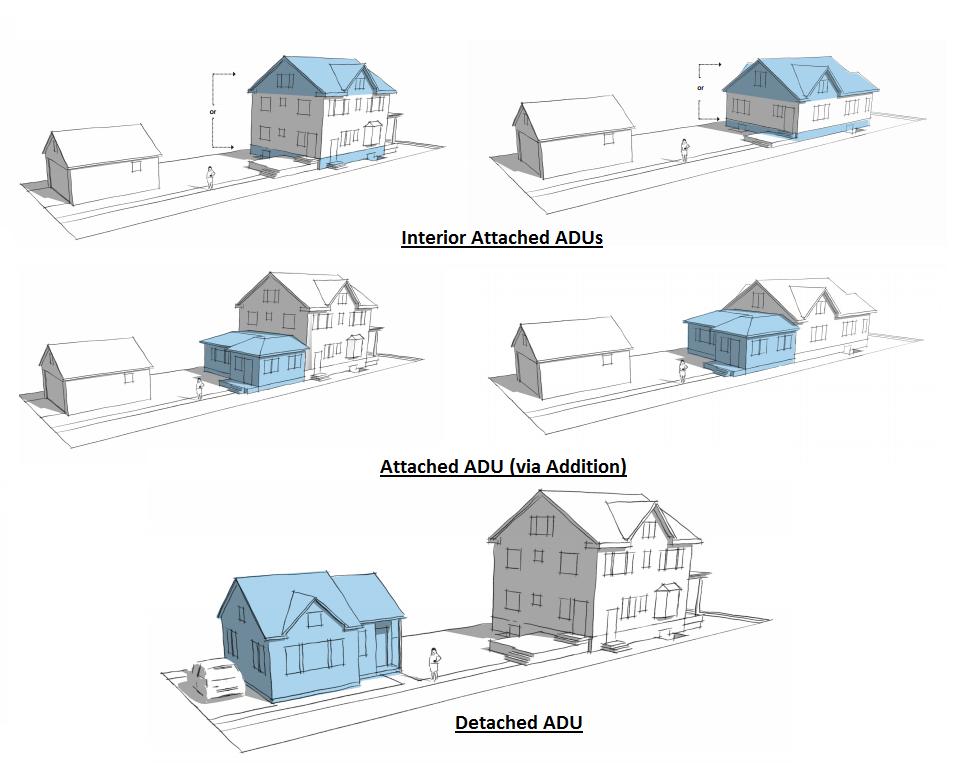
While Connecticut state law requires all towns and cities to allow accessory dwelling units (ADUs) either by right or by special permit, individual towns and cities have the ability to create their own regulations and restrictions related to ADUs. As a result, some towns may not allow ADUs or may impose stricter regulations on them.
There are a variety of reasons why a town may not allow ADUs. One common concern is related to the potential impact on the character of a neighborhood or community. Some residents may worry that the addition of an ADU will change the nature of their community or that it will have a negative impact on property values. Other concerns may be related to traffic, parking, or overcrowding.
In addition, some towns may not have updated their zoning regulations to reflect the changes in state law that require ADUs to be allowed. Others may not have the resources to adequately review and process applications for ADUs, which can be time-consuming and require expertise in zoning and building regulations.
It's important to note that ADUs can be an effective way to address the affordable housing crisis and provide more flexible housing options for homeowners and renters. However, each town and city must balance the potential benefits of ADUs with the concerns and challenges that come with implementing them.
Connecticut state law requires that all towns and cities in the state allow Accessory Dwelling Units (ADUs) by right or by special permit. However, individual towns and cities can impose their own regulations and guidelines for ADUs. Here is a list of some Connecticut towns and cities that allow ADUs:
- Avon
- Bethany
- Bethel
- Bloomfield
- Bolton
- Branford
- Bristol
- Brookfield
- Canton
- Chaplin
- Chester
- Clinton
- Colchester
- Coventry
- Cromwell
- Danbury
- Durham
- East Haddam
- East Hampton
- East Windsor
- Ellington
- Essex
- Farmington
- Franklin
- Glastonbury
- Granby
- Groton
- Guilford
- Haddam
- Hamden
- Hartford
- Hebron
- Killingworth
- Lebanon
- Ledyard
- Madison
- Manchester
- Mansfield
- Marlborough
- Meriden
- Middlebury
- Middletown
- Milford
- Monroe
- Montville
- Naugatuck
- New Canaan
- New Fairfield
- New Hartford
- New London
- New Milford
- Newington
- Newtown
- North Branford
- North Haven
- Norwalk
- Old Lyme
- Old Saybrook
- Orange
- Oxford
- Plainfield
- Plainville
- Plymouth
- Pomfret
- Portland
- Prospect
- Putnam
- Redding
- Ridgefield
- Rocky Hill
- Salem
- Scotland
- Seymour
- Shelton
- Somers
- South Windsor
- Sprague
- Stafford
- Stamford
- Sterling
- Stonington
- Suffield
- Thomaston
- Tolland
- Trumbull
- Union
- Vernon
- Voluntown
- Wallingford
- Waterbury
- Waterford
- West Hartford
- Westbrook
- Weston
- Westport
- Willington
- Wilton
- Windsor
- Windsor Locks
- Wolcott
- Woodbridge
This list is not exhaustive, and towns and cities may update their regulations and guidelines at any time. Homeowners who are interested in building an ADU in Connecticut should check with their local zoning department to confirm that ADUs are allowed and to learn about any specific requirements or guidelines.

Leave A Comment